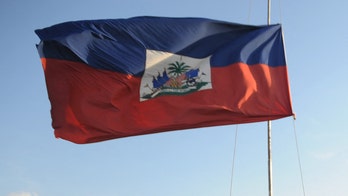The United States is exploring options to preserve its presence in West Africa after Niger's decision to expel U.S. military in favor of partnering with Russia. U.S. Africa Command Commander Gen. Michael Langley is meeting with African leaders to discuss ways to relocate military assets previously stationed in Niger.
As the United States withdraws its military forces from Niger by a September 15th deadline, it is actively pursuing partnerships with other West African countries to maintain its presence in the region. This move comes after Niger's decision to expel U.S. military in favor of partnering with Russia, marking a setback for Washington's counterterrorism efforts in the region.

U.S. Military Repositions in West Africa Amidst Niger's Decision to Partner with Russia
Gen. Michael Langley, commander of U.S. Africa Command (AFRICOM), is currently in Botswana for the African Chiefs of Defense Conference to discuss ways to preserve U.S. presence in West Africa. He has met with several African leaders and is exploring opportunities to relocate capabilities previously stationed in Niger.
According to Air Force General C.Q. Brown, chairman of the Joint Chiefs of Staff, the U.S. has initiated talks with countries such as Benin, Ivory Coast, and Ghana to potentially reposition military assets. These partnerships could provide opportunities to maintain some of the capabilities that were lost in Niger, although the U.S. is not expected to be able to fully replicate its counterterrorism footprint in the region.

U.S. Military Repositions in West Africa Amidst Niger's Decision to Partner with Russia
The U.S. military had considered establishing a large base or relocating troops wholesale from Niger to another location. However, U.S. officials acknowledge that this is unlikely due to the region's rapidly changing political landscape. In recent years, eight coups have taken place in West and Central Africa, including in Niger, Burkina Faso, and Mali. The juntas that are now ruling many of these countries are less inclined to work with Western countries and are increasingly turning to Russia.
Russia's presence in the region has also raised concerns. U.S. officials have observed Russian military forces training at Air Base 101 in Niger after the U.S. withdrawal. Although there has been no contact between U.S. and Russian troops, the situation underscores Russia's growing influence in West Africa.
Despite the challenges, the U.S. is determined to maintain its presence in the region to address the threat of Islamist groups expanding across the Sahel region. U.S. officials acknowledge that the withdrawal from Niger is a setback but emphasize that they are conducting an introspection to reassess their goals and strategies.
Gen. Brown expressed hope that even after the withdrawal from Niger, there might be a future opportunity to rebuild the relationship with the country given the years-long investment in military ties. The U.S. Embassy in Niger remains open, and the U.S. government will continue to explore ways to re-establish a security partnership with Niger in the future.
In the meantime, the U.S. military will continue to work with partner countries in West Africa to counterterrorism threats and maintain stability in the region. The U.S. withdrawal from Niger is being completed on schedule, with only 600 troops remaining at Air Base 101. As the U.S. exits, Russia's military presence in the region is expected to grow, raising concerns about its potential implications for regional security.










